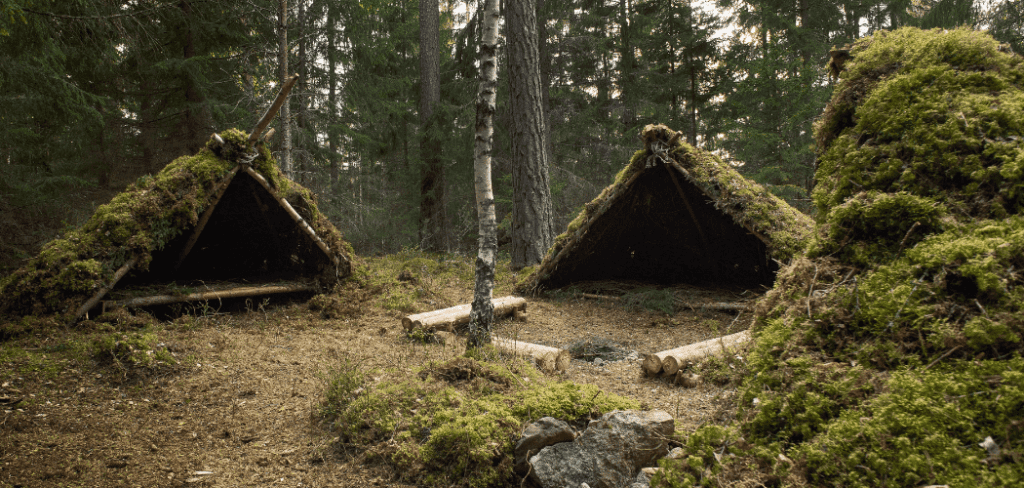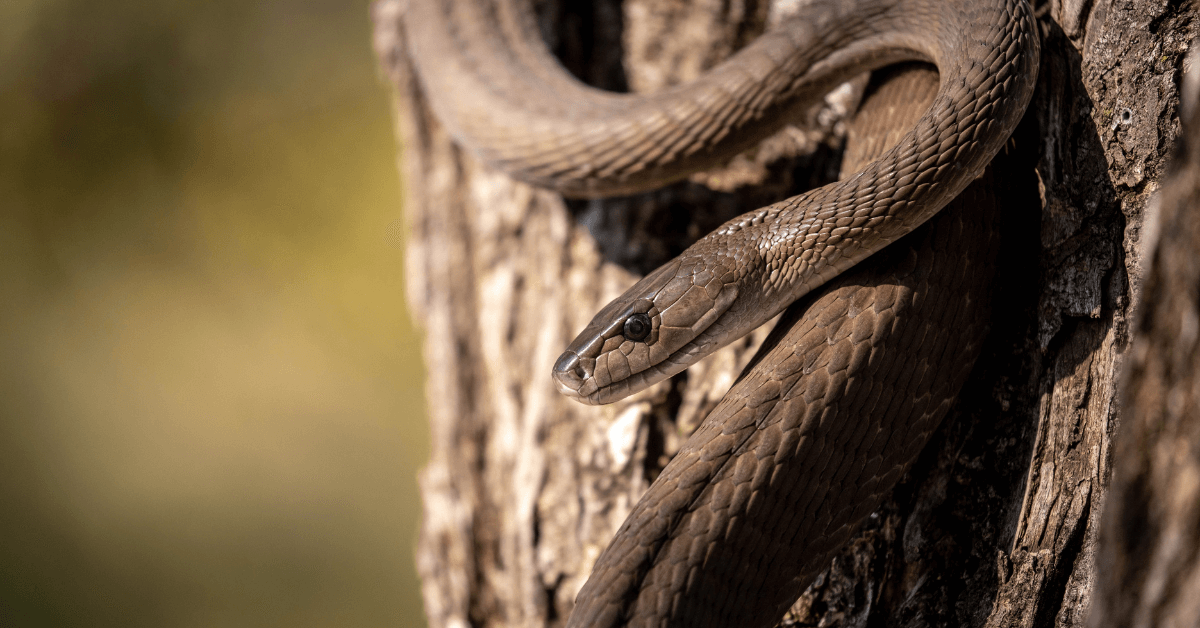When it comes to camping, most people worry about bears, bugs, and bad weather. But what about snakes? While it’s true that most snakes aren’t dangerous to humans, encountering one in the wild can still be a jarring and unnerving experience. The good news is, there are plenty of ways to protect yourself and your tent from snakes while camping. That’s all you and I will be unpacking today.
Should You Be Worried About Snakes While Camping?
The short answer is no, you shouldn’t be overly worried about snakes while camping. The vast majority of snakes found in North America are not venomous, and even those that are venomous typically only bite as a last resort. In fact, snakes would much rather avoid humans altogether. However, it’s still a good idea to be aware of the local snake population and take steps to protect yourself and your tent.
Plus, While it’s true that snakes can be found in many camping areas, the chances of encountering one are relatively low. And snakes are more afraid of humans than we are of them and will typically avoid us if given the chance. That being said, it’s still important to be aware of your surroundings and take precautions to protect yourself and your tent from snakes.
What can I put around my tent to keep snakes away?
One of the simplest methods is to use spread a snake repellent around your tent. You can find these in most outdoor stores and can be sprayed around the perimeter of your tent to keep snakes at bay. Another option is to use a snake-proof barrier, such as a fence or netting, to keep snakes from getting too close to your tent. Additionally, you can use a snake trap to capture and relocate any snakes that may come too close to your tent.
Can Snakes Get in a Tent?
It is possible for snakes to get inside a tent, especially if the tent has holes or tears, or if it’s not properly zipped up. However, most snakes will not actively seek out a tent to get inside. If a snake does get inside your tent, it’s important to stay calm and slowly back away. Do not try to capture or kill the snake; simply open the door or window and let it out.
What to Do When a Snake Gets Inside Your Tent
If a snake does manage to get into your tent, the first thing you should do is stay calm. Most snakes are not venomous and will not hurt you if you give them space. Slowly back away from the snake and carefully exit the tent, making sure to keep an eye on the snake as you leave.
Once you are out of the tent, you can call for help or use a snake trap to capture and relocate the snake.
Additional Ways On How To Protect Your Tent From Snakes
There are a lot of things you can do to protect your tent from snakes, including:
1. Use a snake-repellent spray or granules
Using a snake-repellent spray or granules around the perimeter of your tent is a great way to keep snakes away from your camping area. These products use a combination of scent and taste deterrents that snakes find unappealing. The smell of the repellent can be overwhelming for snakes and the taste can be bitter and unappetizing.
Be sure to read the label and follow the instructions for use, as some products may need to be reapplied after a certain amount of time or after heavy rain.
2. Keep a clean camp

Keeping a clean camp is also important when it comes to keeping snakes away. Snakes are attracted to food and garbage, so be sure to properly store your food and dispose of your trash. Keep all food in airtight containers and store it away from your tent. Make sure to clean up any spills or crumbs and keep your campfire area clean.
3. Use a tent with a solid floor
Using a tent with a solid floor is another way to keep snakes out of your sleeping area. A tent with a solid floor will make it more difficult for snakes to get inside. A mesh floor or a floor that has gaps in it can make it easier for snakes to enter your tent.
4. Set up your tent on a raised platform
Setting up your tent on a raised platform is another way to keep your tent off the ground and out of reach of snakes. A raised platform can be made of wood, bricks, or even a tarp. This will keep your tent off the ground and make it more difficult for snakes to reach.
5. Keep your tent zipped up at all times
Keeping your tent zipped up at all times is also important. Snakes can squeeze through surprisingly small openings, so make sure your tent is closed up tight. Check the zippers on your tent before going to bed and make sure they are all closed.
6. Use a snake-proof tent
Using a snake-proof tent is also an option. Some tents are specifically designed to keep snakes out. These tents are typically made with heavy-duty materials and have a solid floor. Snake-proof tents can be more expensive, but they can provide peace of mind while camping in areas with snakes.
7. Use a snake-proof barrier around the tent
Creating a snake-proof barrier around your tent is another option. You can use materials such as mesh or small-diameter metal wire to create a barrier around your tent. This will prevent snakes from getting too close to your tent and will make it more difficult for them to enter.
8. Use a snake-proof sleeping bag
Using a snake-proof sleeping bag is another option. Sleeping bags that are made with snake-proof materials can help keep snakes out of your sleeping area. These sleeping bags typically have a thick and durable outer layer that is difficult for snakes to penetrate.
9. Use a camping hammock
Using a camping hammock is another great way to keep snakes away while you’re sleeping. Snakes cannot climb up a camping hammock, so you’ll be safe from snakes while you’re sleeping. A camping hammock is also a great option for those who want to sleep off the ground.
10. Keep a snake bite kit with you
Lastly, it’s important to keep a snake bite kit with you while camping. This should include a compression bandage, a suction device, and a snake bite identification guide. In the event that a snake does bite you, it’s important to have the necessary tools to properly treat the bite.
Related: Are Snakes Attracted to Campfires?
Additional Facts About Snakes That Will Keep You Safe While Camping
- Most snakes are more afraid of you than you are of them. They will typically try to avoid humans whenever possible.
- Snakes are most active at dawn and dusk
- Snakes are cold-blooded and prefer to be in warm environments, so they are more likely to be found in sunny, open areas rather than in dense wooded areas.
- Snakes are most likely to be found near water sources, such as creeks, rivers, and lakes.
- Snakes are attracted to areas where there are lots of insects and small animals, such as rodents.
- Snakes are most likely to be found in areas with tall grass, weeds, and underbrush.
- Snakes are also attracted to areas with lots of rocks, logs, and other debris, as these provide cover for them to hide.
- If you encounter a snake in the wild, it’s important to give it a wide berth and avoid getting too close.
- If you’re hiking in snake country, it’s a good idea to wear long pants and boots to protect your legs and feet from bites.
- If you’re camping in snake country, make sure you set up your tent in a safe location, such as on a raised platform or on a solid surface.
- If you’re camping in snake country, make sure you keep your tent zipped up at all times to prevent snakes from getting inside.
- If you’re camping in snake country, make sure you keep a clean camp and properly store your food to avoid attracting snakes.
- If you’re camping in snake country, make sure you carry a snake bite kit with you in case of an emergency.
Conclusion – What Can I Put Around My Tent To Keep Snakes Away?
So, to conclude, snakes are not typically a major concern while camping, but it’s still a good idea to take precautions to protect yourself and your tent from these slithering creatures. By following the tips outlined in this article, you can enjoy your camping trip without worrying about snakes.
And remember, if you do encounter a snake in the wild, just stay calm and give it a wide berth. Happy camping!”
